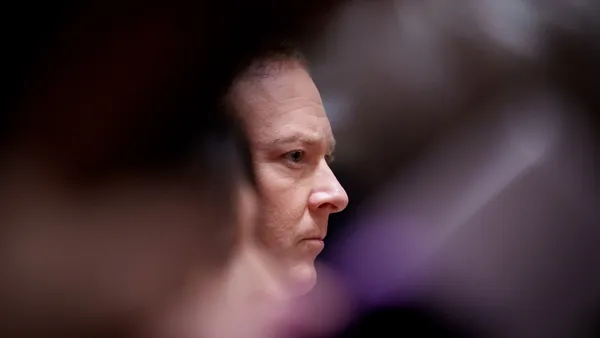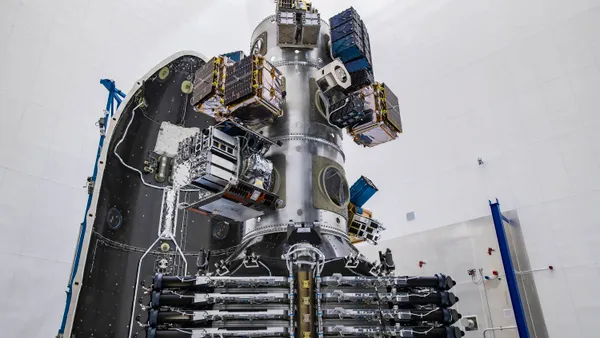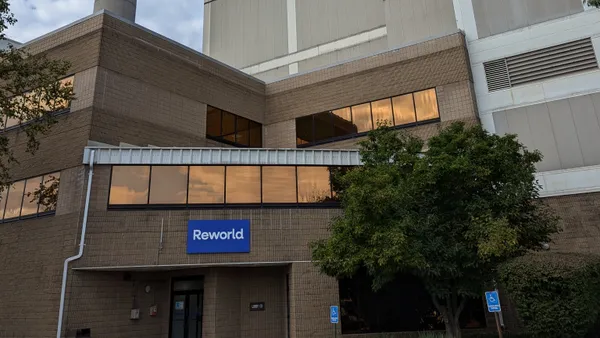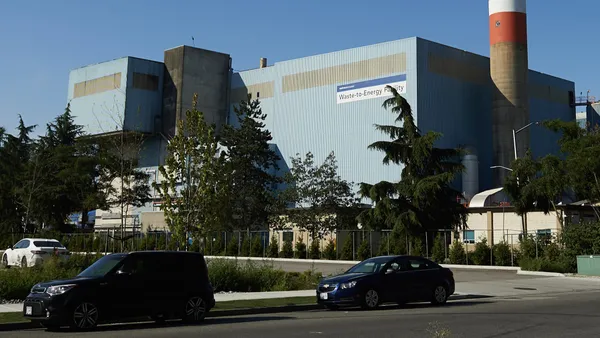UPDATE: The Finance Authority of Maine (FAME) has agreed to provide Fiberight with $45 million in tax-exempt conduit bonds to build a new waste-to-energy facility in the state, as reported by the Bangor Daily News.
This approval was one of the last remaining milestones for Fiberight to reach after a state judge upheld the project's permit approval in a ruling last month. According to FAME's findings, the Fiberight facility is projected to reduce costs for the communities that send their waste there by a collective $24 million over the first 15 years. The FAME board also estimated that an additional 300,000 tons of material will be recovered that is currently being incinerated or sent to landfills through an existing contract with the Penobscot Energy Recovery Co.
With financing in hand and permitting finalized, Fiberight now faces the task of completing construction in time to be operational by April 2018.
Dive Brief:
- Maryland-based Fiberight has asked the Finance Authority of Maine (FAME) for $45 million in conduit bonds to help build a $69 million waste processing facility in the town of Hampden, as reported by the Bangor Daily News.
- This tax-free financing option would give Fiberight access to a special low interest rate. Both the Penobscot Energy Recovery Co. (PERC) — Fiberight's main competitor — and Casella Waste Systems have received these bonds in the past.
- Fiberight made its case at a FAME hearing on Feb. 20. PERC representatives also spoke and criticized the project's viability, as reported by WABI. FAME is expected to announce its decision within 30 days.
Dive Insight:
Fiberight's plans for this facility have divided Maine's waste industry, while attracting interest from others in the waste-to-energy field. Covanta has signed on as an investor and 115 communities represented by the Municipal Review Committee have committed to send their waste to Fiberight's facility once it's open. The company broke ground at the 90-acre site in October, but an appeal from PERC and other companies over the state's decision to grant environmental permits is still pending.
No comparable facility currently exists in the U.S. and convincing investors, regulators or customers that new waste technology is worth the risk can be difficult. The facility will have a projected 80% recovery rate for plastics, metals and cardboard. The remaining material will be handled through Fiberight's "targeted fuel extraction" process to create cellulosic sugars, biogas and digestate fiber.
The nearby PERC facility is currently one of the dominant WTE operations, but its costs are expected to increase after a power-purchase agreement expires in 2018. Portland-based ecomaine has picked up some new business from this shift, but is more focused on the state's southern market. If Fiberight can open in April 2018 as planned, it will mark a major shift for the state's waste processing options. Until then, some level of skepticism can be expected to continue.













